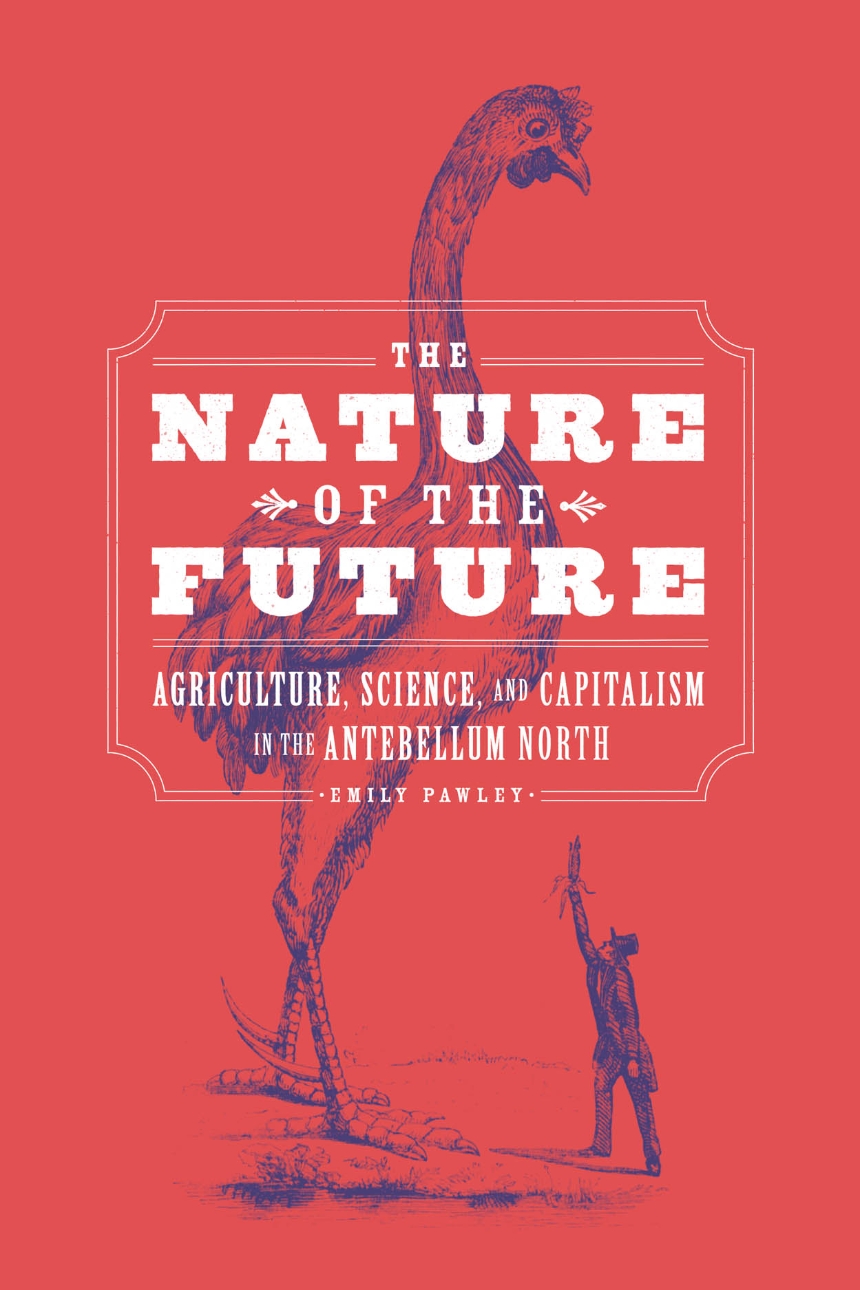The Nature of the Future
Agriculture, Science, and Capitalism in the Antebellum North
9780226820026
9780226693835
9780226693972
The Nature of the Future
Agriculture, Science, and Capitalism in the Antebellum North
Publication supported by the Bevington Fund
The Nature of the Future plumbs the innovative, far-ranging, and sometimes downright strange agricultural schemes of nineteenth-century farms in the northern US.
The nostalgic mist surrounding farms can make it hard to write their history, encrusting them with stereotypical rural virtues and unrealistically separating them from markets, capitalism, and urban influences. The Nature of the Future dispels this mist, focusing on a place and period of enormous agricultural vitality—antebellum New York State—to examine the largest, most diverse, and most active scientific community in nineteenth-century America. Emily Pawley shows how “improving” farmers practiced a science where conflicting visions of the future landscape appeared and evaporated in quick succession. Drawing from US history, environmental history, and the history of science, and extensively mining a wealth of antebellum agricultural publications, The Nature of the Future reveals how improvers transformed American landscapes and American ideas of expertise, success, and exploitation from the ground up.
The nostalgic mist surrounding farms can make it hard to write their history, encrusting them with stereotypical rural virtues and unrealistically separating them from markets, capitalism, and urban influences. The Nature of the Future dispels this mist, focusing on a place and period of enormous agricultural vitality—antebellum New York State—to examine the largest, most diverse, and most active scientific community in nineteenth-century America. Emily Pawley shows how “improving” farmers practiced a science where conflicting visions of the future landscape appeared and evaporated in quick succession. Drawing from US history, environmental history, and the history of science, and extensively mining a wealth of antebellum agricultural publications, The Nature of the Future reveals how improvers transformed American landscapes and American ideas of expertise, success, and exploitation from the ground up.
312 pages | 16 halftones | 6 x 9 | © 2020
Economics and Business: Economics--Agriculture and Natural Resources, Economics--History
History: American History, Environmental History
Reviews
Table of Contents
Introduction: Bending Reality with Large Strawberries
Part 1 Performances
1 Capitalist Aristocracy
2 No Ordinary Farmers
Part 2 Experiments
3 Experiments All for Worldly Gain
4 Trying Machines
Part 3 Futures
5 Coining Foliage into Gold
6 Divining Adaptation
Part 4 Values
7 Truth in Fruit
8 The Balance-Sheet of Nature
Epilogue
Acknowledgments
List of Abbreviations
Notes
Index
Part 1 Performances
1 Capitalist Aristocracy
2 No Ordinary Farmers
Part 2 Experiments
3 Experiments All for Worldly Gain
4 Trying Machines
Part 3 Futures
5 Coining Foliage into Gold
6 Divining Adaptation
Part 4 Values
7 Truth in Fruit
8 The Balance-Sheet of Nature
Epilogue
Acknowledgments
List of Abbreviations
Notes
Index
Awards
Forum for the History of Science in America: Philip J. Pauly Book Prize
Won
